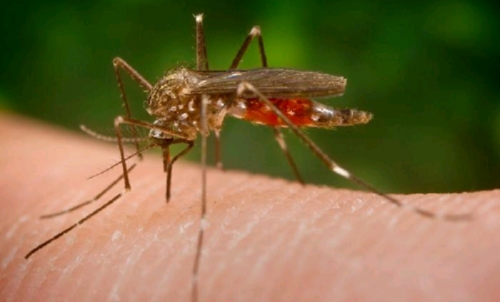WHO calls on Middle East region to take steps to prevent Zika virus
As the Zika virus outbreak continues to spread, reaching 24 countries in the Americas (as of January 27) the World Health Organization’s (WHO) Eastern Mediterranean regional director is calling on governments to work together to keep the region protected, muscatdaily.com reported.
“Zika virus is spread by the Aedes mosquito, the same type that transmits dengue, yellow fever and chikungunya,” said Dr Ala Alwan, the regional director. “No cases of the virus have been reported so far in this region, but this type of mosquito exists in several countries here, so it is essential that government leaders take steps to prevent the virus from spreading if travellers returning from affected countries are infected with it.”
Most people with the disease experience mild fever, skin rash and conjunctivitis, for up to a week. But, for the first time, in conjunction with the recent outbreak, there has been a steep increase in births of babies with abnormally small heads and neurological syndromes. It is not yet proven with certainty that the virus is causing the birth defects, but evidence so far suggests strongly that there is a link and further investigations are under way, a release from the WHO Regional Office in Egypt stated. Because no specific treatment or vaccine is currently available, the best form of prevention is protection against mosquito bites.
WHO said it is working globally to support countries where the disease has been detected, to help understand the potential link between the virus and birth defects, to reduce the international spread of the disease and to help expedite the development of a vaccine or treatment for Zika virus.
At this point in time, WHO does not recommend any restrictions on travel or trade but this decision will be reviewed regularly. Because the situation varies by country, WHO recommends travellers also consult the relevant national health advice before traveling to any affected country, the release stated.
Bahrain’s Ministry of Health has declared that ‘there is no risk of Zika viral infections outbreak in the country.’
Precautions against Zika virus
For Eastern Mediterranean countries, WHO has listed the following precautions:
- Enhance surveillance for early detection of Zika virus infection, particularly among travellers returning from affected countries.
- Be vigilant for any increase in the number of babies recently born with birth defects or neurological syndromes, where this is not a clear medical cause.
- Bolster surveillance in countries where Aedes aegypti mosquitoes are present, to detect high density of mosquito populations.
- Scale up activities to reduce the source of mosquito populations, especially breeding sites like standing water, through indoor spraying and engaging communities.
-Raise awareness among people living in high risk countries where dengue, chikungunya and yellow fever are present, emphasising personal protection measures to prevent mosquito bites, especially during day time when these types of mosquitoes tend to bite.
- People should use insect repellent, wear clothes that cover as much of the body as possible, use physical barriers such as screens, closed doors and windows, and empty any containers that hold standing water which can be a breeding ground for these mosquitoes.
Related Posts

